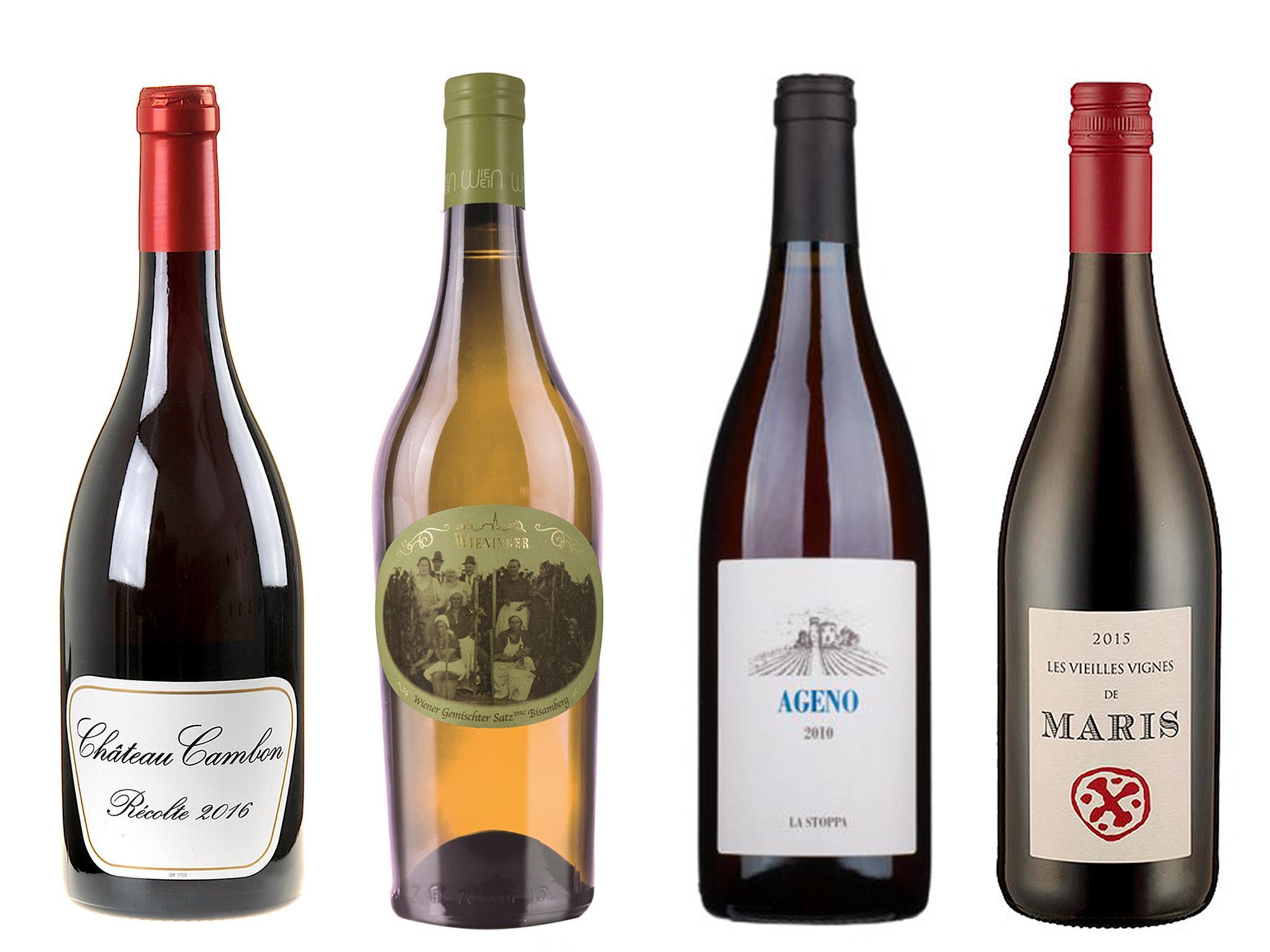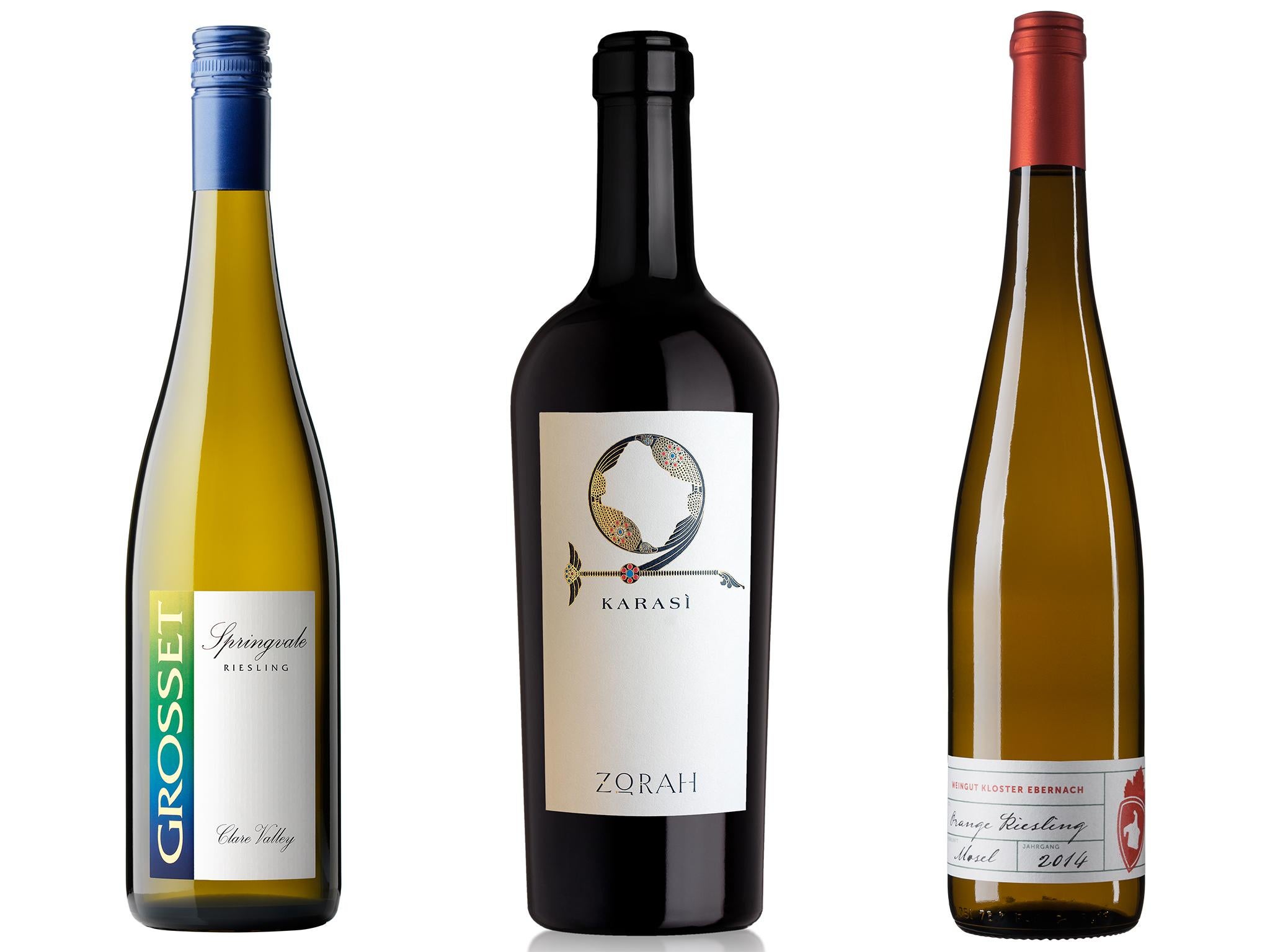The Independent's journalism is supported by our readers. When you purchase through links on our site, we may earn commission.
Wines of the week: Seven natural wines from online retailers

Your support helps us to tell the story
From reproductive rights to climate change to Big Tech, The Independent is on the ground when the story is developing. Whether it's investigating the financials of Elon Musk's pro-Trump PAC or producing our latest documentary, 'The A Word', which shines a light on the American women fighting for reproductive rights, we know how important it is to parse out the facts from the messaging.
At such a critical moment in US history, we need reporters on the ground. Your donation allows us to keep sending journalists to speak to both sides of the story.
The Independent is trusted by Americans across the entire political spectrum. And unlike many other quality news outlets, we choose not to lock Americans out of our reporting and analysis with paywalls. We believe quality journalism should be available to everyone, paid for by those who can afford it.
Your support makes all the difference.What do we mean by ‘natural’ wines? One of the biggest growth areas in wine in the last few years, most now agree that to be called ‘natural’ wines must tick a number of boxes: organically or biodynamically produced grapes, hand-harvested, fermented using natural wild yeast and additive-free, other than no or very low sulphites. They should, mostly, not be fined – the process where chemicals are put in wine to reduce astringency and residues – and be only lightly filtered. In summary: minimal human intervention – or as one natural winemaker put it: our work is in the vineyard, not in the winery.

But because most such producers tend to be smallish, artisan concerns, with sustainable, environmentally friendly policies, who only produce relatively low volumes, their wines are less likely to be found in the big supermarkets and High Street retailers – although you will find a number of organic or biodynamic wines on their lists, they don’t always tick all the other boxes.
Natural wines are found in many wine bars and restaurants in London and other big cities, but those who want to consume their wine at home need to seek out niche web retailers such as Red Squirrel Wines and GoodWineOnline or regional wine shops and importers like Les Caves De Pyrene, based in Arlington in Guildford – one of the leaders of the natural movement – Hay Wines, tucked away in Ledbury in Worcestershire and BuonVino, in the Yorkshire Dales, all of which sell online.
So, for the uninitiated, what do they taste like? While the sometimes idiosyncratic or simply unexpected flavours of natural wines are often a bit challenging to consumers raised on a diet of, say, claret and Aussie chardonnay, the sheer vibrancy, the absolute feel for the terroir and the difference of some of these bottles should excite anyone with an interest in wine.
The big thing in natural wines is, of course, orange wine, made by leaving the skins in the mix when white wine is made, using their tannins to create deeper, richer, complex flavours, very different from the conventional wine styles of red, white or rose which should be drunk cooled, but not chilled. For an in-at-the-deep-end introduction, try the sensational La Stoppa Ageno 2010 (£27.99 haywines.co.uk; £28.45 lescaves.co.uk) made in Emilia Romagna from a combination of Malvasia, Trebbiano and Ortrugo grapes: fabulously perfumed, a nutty, mineral feel in the mouth and bone dry on the palate with a long, tangy finish. For food matches, think of it as a dry sherry like an amontillado and chose strong, salty and umami flavours like hard cheeses, anchovies and charcuterie, as well as richer fish dishes. And it certainly provides a talking point at dinner parties. A similar, but slightly less intense experience is given by the Weingut Kloster Ebernach Experimental Orange Riesling 2014 (£27.00 redsquirrelwine.com) made by an Australian in some of the most northerly vineyards in Europe in the German Mosel region. This is also perfumed, nutty and somehow, extremely moreish, while retaining that distinctive Riesling minerality.
For a more conventional Riesling, but driven by organic principles, with no fining, try the Grosset Spring Vale Clare Valley Riesling 2017 (£21.00 winesociety.com) which delivers intense flavours of grapefruit and green apples; bone dry and bracing, a really excellent partner for prime white fish. As is the biodynamic Austrian Wieninger Wiener Gemischter Satz Bisamberg 2016 (£103.62 for minimum six bottles; thefinewinecompany.co.uk) which demonstrates how to deliver incredible fresh, vibrant, chalky minerality and a fantastically dry, spicy finish from this blend of Pinot Blanc, Pinot Gris and Chardonnay, which is both instantly appealing and lingers long on the palate.
Apart from orange wines, the other key natural wines trend is amphorea wines – where the wine is fermented in traditional egg shaped terracotta clay vessels, a process which originated many thousands of years ago when wine was first made in central Europe and parts of the Middle East. For the authentic experience, try the Armenian Karasi Areni Noir 2014 (£22.06 thedrinkshop.com; £22.50 winedirect.co.uk) made from the Areni grape, which is indigenous to Armenia – a country whose robust red wines are well worth discovering – and named after a village where a 4,000 year old winery was discovered. An extraordinary, iron-fist-in-velvet-glove wine: a perfumed nose, fresh and medium bodied, yet fabulously rich and powerful on the palate, with grippy tannins and layers of ripe red fruits.
But not all natural wines have to be fringe grapes or from out of the way places. The Beaujolais region of France, which is well stocked with traditional winemaking skills practised by smallish producers with a respect for individual terroir, has also embraced the natural ethos: try the organic, medium bodied, Chateau Cambon 2016 (£14.95 buonvino.co.uk; £15.50 josephbarneswines.com;) made with wild yeasts. Pure red fruits, a sense of earth, smoke and spice, elegant and balanced, it is best drunk lightly chilled; the succulent Gamay grape at its finest.
As astute readers may have noticed, the other point about natural wines is that all this non-intervention comes with a premium – they tend to be on the pricey side for everyday drinking. But, if you hunt around, you can find wonderful bargains such as the Maris Minervois Vielles Vignes 2016 (£10.99 ocado.com; waitrosecellar.com) a biodynamic, unfined, Syrah from the excellent La Liviniere area of the Languedoc in southern France, made by a small winery completely aligned to sustainable, natural, organic principles. Rich, spicy and voluptuous, with great, unoaked purity of fruit flavours and a lovely fresh drinkability, it somehow embodies everything these wines should be.
Finally, if you want to explore more of what natural wines have to offer – and, trust me, we have only scratched the surface here – check out RawWineWeek, from 7-14 March, when bars and restaurants in London and around the country will be celebrating the joys of natural wines; it includes a two-day tasting event in London on 11-12 March.
Join our commenting forum
Join thought-provoking conversations, follow other Independent readers and see their replies
Comments